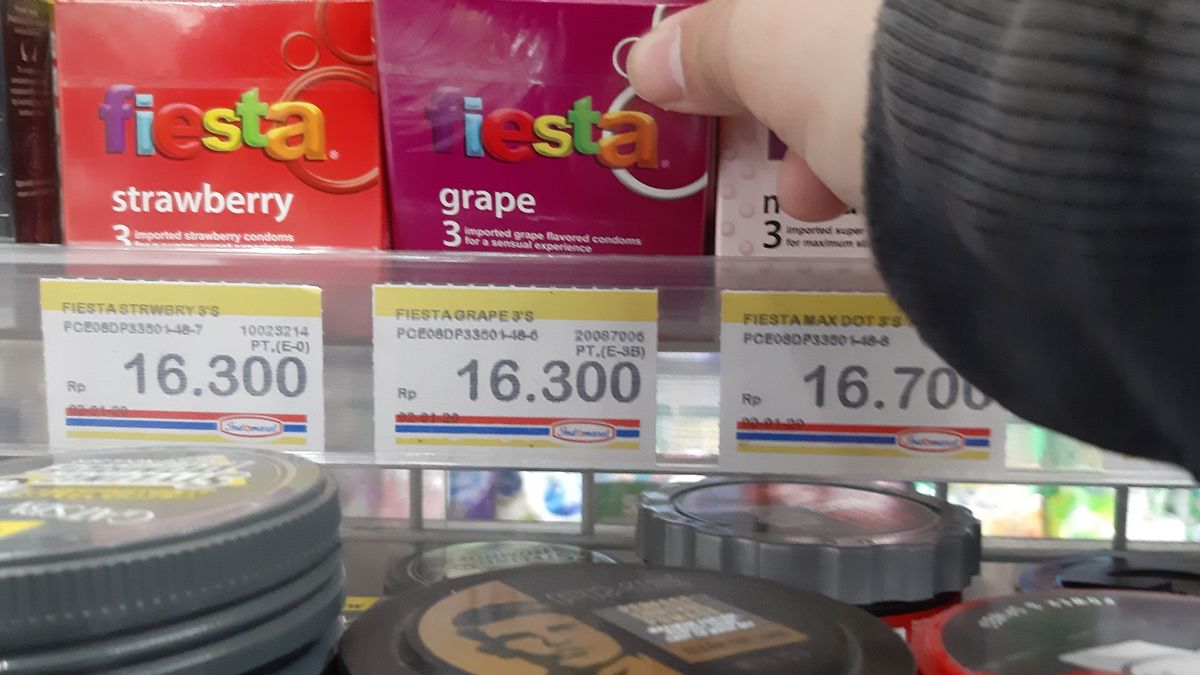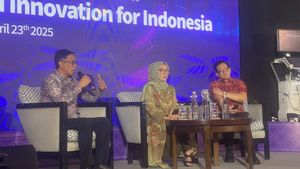JAKARTA - Condoms are not prohibited items. In big cities like Jabodetabek or other big cities, most minimarkets sell these contraceptives.
There are also no restrictions on buying, because usually condoms are placed at the cashier and we can buy them for only Rp20 thousand. However, the usual negative stigma of buying condoms discourages people from buying them.
I open a question on my personal Twitter account. The essence of the question is to ask netizens to tell their experiences when buying condoms, especially for citizens who are already married and usually buy contraceptives.
Dear friends, does anyone have experience buying condoms? Do you want to share your experiences, for example, you are embarrassed when you want to buy even though you are already married or seen by the shopkeeper. Hehe.
- TSATSIA (@tsatsiaaa) January 10, 2020
I received hundreds of responses from netizens, most of them actually felt normal when buying condoms. It's just that, the negative views of those who both queue at the convenience store cashier ultimately make them hesitate to buy directly and choose to use an online application. The goal is to avoid negative stigma or strange views from both cashiers and other buyers.
In fact, there is a netizen who shared a ludicrous experience when he bought a condom. Through direct message, Fajri (32), a resident of South Mongondow, told me that he had bought a condom at a minimarket in his city.
At that time, he not only bought condoms but also bought baby diapers for his children because he was already married. But, for whatever reason, suddenly the cashier looked strange when he took a packet of condoms.
"When he bought it, he just counted the usual groceries when he wanted to total it, I took the condom and asked for it. The cashier immediately shouted and took a few steps back, I didn't say anything," said Fajri via direct message service on Twitter, Saturday, January 11.
"Then I said, 'why miss? This is what I paid for'. After that, the cashier rushed to count and immediately put the condom into the groceries with a look of displeasure," added a direct message from Fajri.
Akuuuu At that time I really did make a social experiment with the program, I bought a condom at the convenience store, I really dared to say 'mba, I want to buy a condom' which I can actually take by myself😂Ma minimarket and other visitors simultaneously see me🤣
- drink (@estehwarteg) January 10, 2020
Since then, he admitted that he never wanted to buy condoms at the convenience store again. If he does have to buy condoms, he will buy them at city pharmacies where the cashier is perceived as more open minded and understands condoms as a means of contraception.
Various stories that have entered my personal Twitter, make me want to feel how people think when someone buys a condom.
I had stopped at a minimarket in the Pondok Kopi area, East Jakarta. Once inside, I went straight to one of the shelves where the condom was placed. Its position is around toiletries such as soap and shampoo. Then I took a pack of condoms worth Rp. 16 thousand and took them to the cashier.
At that time, the payment queue at the cashier was quite busy. I was normal at first. But, when it was my turn to pay, the cashier who served me looked strange. Likewise with the person who was doing transactions next to me. It's like seeing me buying drugs instead of buying condoms.
"Why, miss?" I asked the cashier. But he didn't want to answer and instead said that I got a bonus wet tissue for buying a condom.
Yes, I just used to, like buying chocolate close to the cashier. Just take it, then pay. But, yes, if there is a queue behind you, you usually don't buy it 🤪
- Ary 🇮🇩 (@mamarafan) January 10, 2020
I left the minimarket and thought, why does the stigma of buying condoms sound bad. In fact, as reported by the Alodoc.com site, condoms are one of the contraceptives that are practical, cheap, and easy to obtain.
In addition, if used properly, condoms can prevent pregnancy as well as protect against sexually transmitted diseases (STDs).
Stigma Comes From Myths
Sexual psychologist Zoya Amirin also explained that the emergence of a negative stigma against buying condoms - even if the buyer is a married couple or those who are married - because of the myth that buying a condom is tantamount to legalizing premarital sex or casual sex.
"Condoms are [considered] the legalization of premarital sex. This myth is why people are lazy to buy condoms. It is as if they are embarrassed when they want to buy condoms, they think they want to do anything," Zoya said when met by VOI in the Kebayoran area, South Jakarta, Friday, January 10th.
He also said that people will continue to find condom buyers strange as long as this kind of negative stigma persists. In fact, a married couple can buy a condom as a contraceptive to prevent pregnancy.
Zoya said, this negative stigma could also arise due to the lack of sex education in Indonesia. Thus, he emphasized the need for sex education in society so that this kind of negative stigma no longer occurs.
"Education is one way to prevent sex offenders and prevent people from having negative myths. So, actually [sex education] is important so that your sexual life is more normal," he concluded.
The English, Chinese, Japanese, Arabic, and French versions are automatically generated by the AI. So there may still be inaccuracies in translating, please always see Indonesian as our main language. (system supported by DigitalSiber.id)













